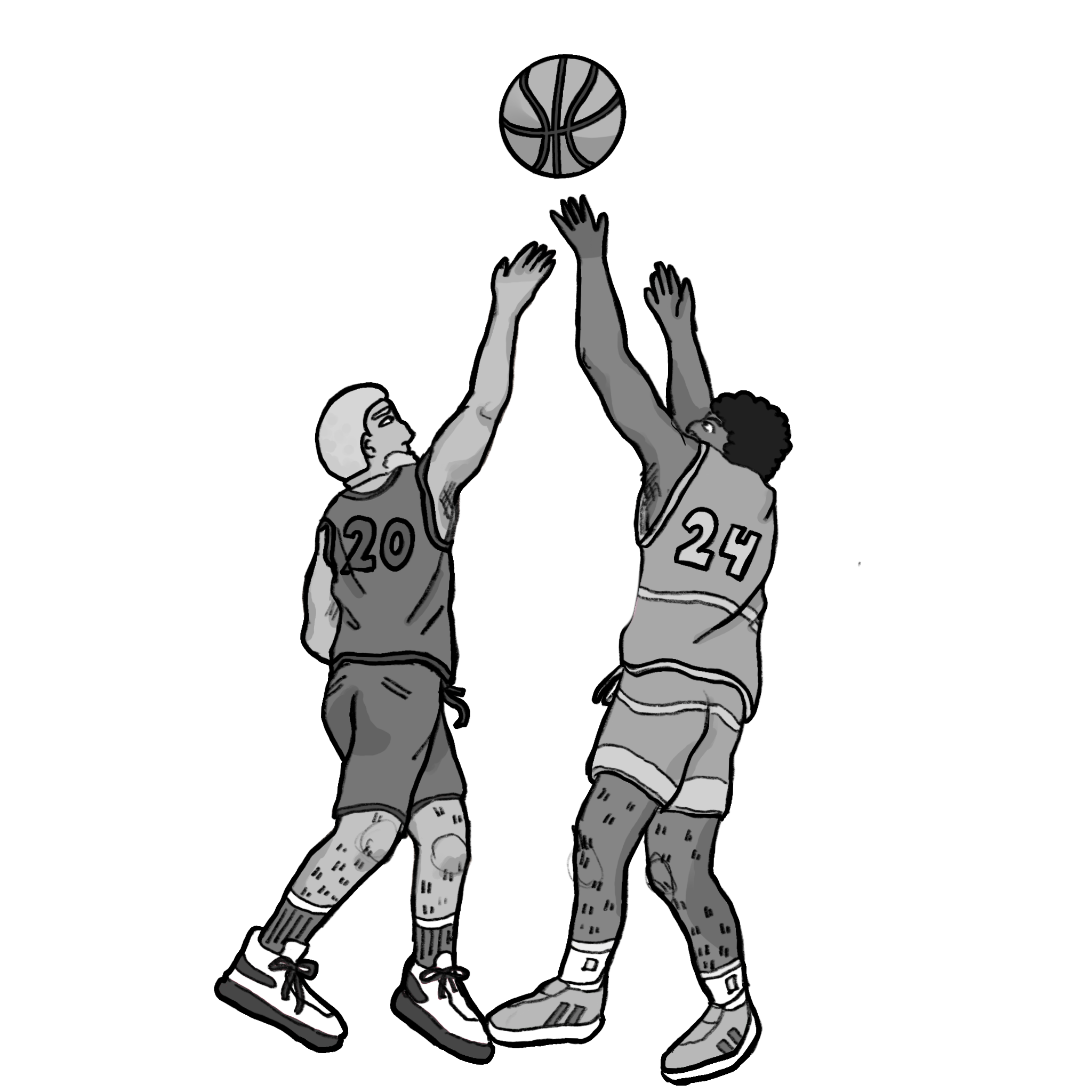Baskets and Brackets: March Madness at PHS
March, 2024
Every March, basketball fans across the United States switch their television channels from the NBA to college basketball to watch collegiate athletes compete in one of the most highly-anticipated sports competitions of the whole year: March Madness.
This National Collegiate Athletic Association (NCAA) Division I tournament began in 1939 with eight teams. As viewership increased, the tournament developed into a 68-team super tournament, with enthusiastic fans tuning in every year to cheer on their local teams.
Before 2023, Princeton University was ousted from March Madness four times in a row. However, a great run to the Final 16, with wins over both the University of Arizona and the University of Missouri, sparked interest for the tournament in the Princeton community and especially at PHS.
Among those invested in the tournament are PHS’s basketball players, who look up to famous collegiate players. Justin McLeod ’25 is a player on PHS’s junior varsity basketball team and a long-time fan of the tournament.
“I find it very entertaining,” said McLeod. “I’ve been watching [March Madness] for four years now. I like the intensity.”
One aspect that sets March Madness apart from other tournaments is its unpredictability. The yearly tournament is based around a seed ranking, in which the teams with the best records play the teams with the worst records. Despite this, lower-ranked colleges frequently beat well-known institutions. Taking into account that one loss results in total elimination from the tournament, even the favorites to win the tournament may not be guaranteed the title.
An avid fan, Jackson Zwick ’27 has been watching March Madness for seven years and dedicates hours to rewatching games and predicting the potential outcomes of the tournament in his own bracket spreadsheet.
“There’s always the one blue blood that goes down to a small mid-major school ... I love watching the small teams upset the big teams,” Zwick said.
One such big team is Duke University, which has a strong academic and athletic reputation. The Duke Blue Devils have won 17 NCAA titles and have had some of the biggest comebacks in NCAA history. However, Duke has also lost seven times in just the first and second round of the tournament. Even for Duke, all it takes to lose is one bad day. For McLeod, this uncertainty is one of the best parts of the tournament.
“There are so many upsets in March Madness because of the pressure on the players, which causes them to fold,” McLeod said.
The ups and downs of March Madness may make it entertaining, but another beloved part of the tournament is the game brackets, which viewers fill out with their predictions for how matches will play out. Out of 2.8 billion brackets ever filled out, not one has been perfect. While these odds may seem discouraging, the prospect of being the first to have a perfect bracket is exactly what motivates people to fill out their brackets every year.
There are plenty of bracket makers at PHS. Owen Kelly ’25 is one of the most passionate, and has dedicated hours to creating the perfect bracket.
“What makes creating brackets so exciting is the fact that no one has ever had a perfect bracket before,” said Kelly. “It gives you a reason to care about these games even if you are not a fan of [some of the] teams.”
These brackets and their fame have spawned many copies, with predictions on various themes running alongside the basketball ones. For example, PHS’s biology department sets up an animal-themed bracket every year, something that biology student Marcus Strum ’27 really appreciates.
“[March Mammal Madness] adds character to the science wing and lets students continue their education when hanging out in the hallways,” Strum said.
PHS’s drama classes have a similar activity: March Monologue Madness, a contest based around four rounds of themed monologue performances. Drama teacher Julianna Krawiecki created this activity to inspire her students to improve their acting through friendly competition.
“[March Monologue Madness is] a fun way to bring everyone together and work on a variety of acting skills, memorization, collaboration and camaraderie,” Krawiecki said.
Although not as popular at PHS as March Madness, the biology and drama departments’ brackets still reflect the widespread excitement and anticipation surrounding the tournament in an academic environment like PHS.
